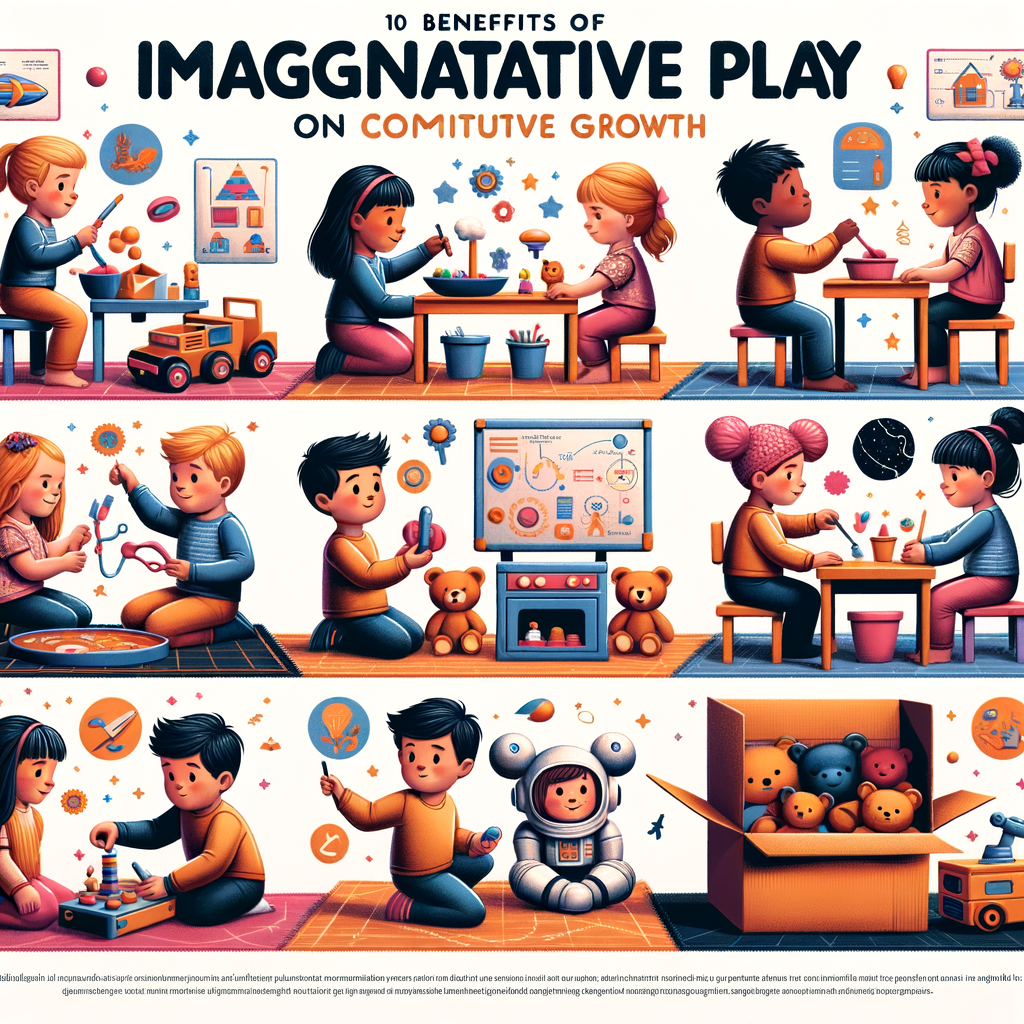
Imaginative play is a magical realm where the ordinary transforms into the extraordinary and where children are not just passive learners but active architects of their own worlds. This type of play is much more than just fun and games; it serves as a catalyst for cognitive growth, helping young minds develop crucial skills that will benefit them throughout their lives. In this article, we will explore ten enchanting benefits of imaginative play for childhood cognitive growth. Buckle up, as we dive into the imaginative landscapes of playful thinking!
Unleashing Creativity: How Imaginative Play Fuels Learning!
Imaginative play opens the floodgates of creativity, giving children the freedom to express themselves in a multitude of ways. Whether they are pretending to be superheroes, pirates, or explorers, children learn to think outside the box and approach problems from different angles. This playful experimentation not only nurtures creativity but also enhances critical thinking skills. When children create scenarios and characters, they engage in cognitive processes that require planning, decision-making, and adaptability—all essential skills for future academic and life challenges.
Furthermore, imaginative play is a rich environment for language development. As children narrate their stories or negotiate roles with peers, they expand their vocabulary and improve their communication skills. This social interaction teaches them the nuances of language, including tone, inflection, and body language, making them more effective communicators. With every adventure they embark on, children learn not just to express their thoughts but also to listen, collaborate, and empathize with others, laying the groundwork for strong interpersonal relationships.
Lastly, engaging in imaginative play fosters problem-solving abilities. Encountering obstacles in their make-believe worlds—be it a dragon that needs to be outsmarted or a treasure that needs to be found—children learn to think critically and devise strategies. This process encourages them to evaluate different outcomes and understand cause-and-effect relationships. By overcoming challenges during play, children build resilience and confidence in their capabilities, which translates into real-world problem-solving skills.
Adventure Awaits: Discover the Joys of Playful Thinking!
The joy of imaginative play goes beyond individual benefits; it also creates a vibrant tapestry of social interaction that enhances children’s emotional intelligence. Through collaborative play, children learn to navigate social dynamics, such as sharing, taking turns, and negotiating roles. These interactions are vital for developing empathy and understanding others’ feelings, equipping children with the emotional tools necessary for building and maintaining friendships. The bonds forged during imaginative play can blossom into lifelong relationships rooted in trust and cooperation.
Moreover, imaginative play serves as a safe space for children to explore and express their emotions. Whether they are pretending to be superheroes fighting villains or caring for imaginary pets, children use play to process their feelings and experiences. This emotional exploration not only aids in self-regulation but also promotes resilience as children learn to cope with various situations and emotions. Through role-playing, they experiment with different reactions and outcomes, helping them understand the world around them and their place within it.
Finally, the sheer joy of imaginative play fosters a love for learning! When children engage in creative play, their natural curiosity is piqued, leading them to explore new concepts and ideas. This intrinsic motivation is a crucial element in the learning process, as children who enjoy learning are more likely to seek knowledge beyond their immediate surroundings. By making connections between their play and the real world, children develop a lifelong passion for exploration and discovery that will carry them through their educational journeys and beyond.
Imaginative play is a treasure trove for childhood cognitive growth, unlocking a world of possibilities for creativity, social interaction, and emotional development. The skills cultivated through playful thinking are invaluable and extend far beyond the playground. As we embrace the joys of imaginative play, we not only enrich our children’s lives but also equip them with the tools they need to navigate the complexities of adulthood. So let the adventures begin—whether it’s through a cardboard box turned spaceship or a living room transformed into a pirate ship—because in the realm of imaginative play, the sky is truly the limit!
